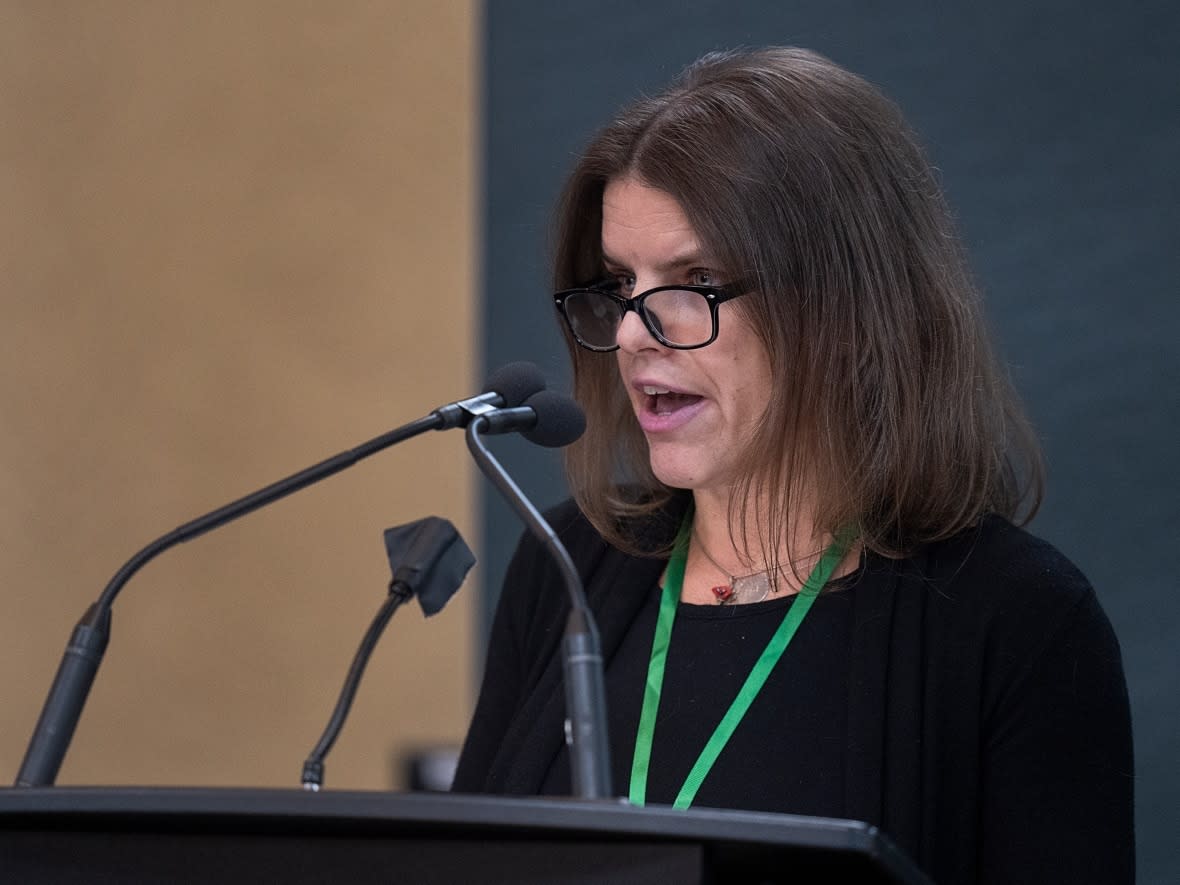Police shouldn't be the sole solution to gender-based violence, says St. John's lawyer

A St. John's lawyer who represents women's advocacy groups in Newfoundland and Labrador is applauding guidance out of Nova Scotia this week to remove police and the courts as the primary means of handling gender-based violence.
Erin Breen, speaking from Truro, N.S., on Friday, said the 130 recommendations contained in the Mass Casualty Commission report heavily emphasize early prevention — something she says Newfoundland and Labrador advocates wanted.
"It appears that the commission did take our submissions quite seriously, and adopted what we were looking for into the report," Breen said.
"Our coalition was really looking for a move away from this default carceral response that we have for gender-based violence that has been completely ineffective."
Instead, the report recommends more funding for community groups working to protect victims of gender-based violence "as opposed to always relying on police and corrections for a reactive solution," Breen said.
"We were very interested in looking for that shift, and I think the commission has strongly supported that."
Breen is representing the Women's Legal Education and Action Fund, the Avalon Sexual Assault Centre and Women's Wellness Within.
WATCH: Lawyer Erin Breen's debrief on Here & Now:
The report comes almost three years after a gunman killed 22 people in rural Nova Scotia. Its analysis concluded that his past patterns of violence and misogyny should have warranted attention from authorities long before his rampage.
The commission emphasized the need for safe spaces for women to report violence and addressed forms of violence, such as coercive control — a form of abuse that may involve gaslighting, devaluation and psychological scare tactics — that aren't recognized by Canadian law.
"Gender-based, intimate partner, and family violence is an epidemic," the authors wrote.
"Like the COVID-19 pandemic, it is a public health emergency that warrants a meaningful, whole of society response."
Breen says the coalition also pushed to recommend education on misogyny and violence in schools from kindergarten through Grade 12.
"We really do have to create a shift this monumental," she said. "It's a societal shift. Education is key, and we have to start when kids are young in order to turn this tide."
The commission's recommendations aren't binding, but the inquiry was a heavily funded, joint federal-provincial venture — which Breen sees as a hopeful sign its advice will be taken seriously.
"The commissioners were very strong on the fact that in this particular case … you had the most horrific tragedy," she said.
"For this to mean anything, for those lives to not have been taken in vain, implementation and action is a must for these family members."


